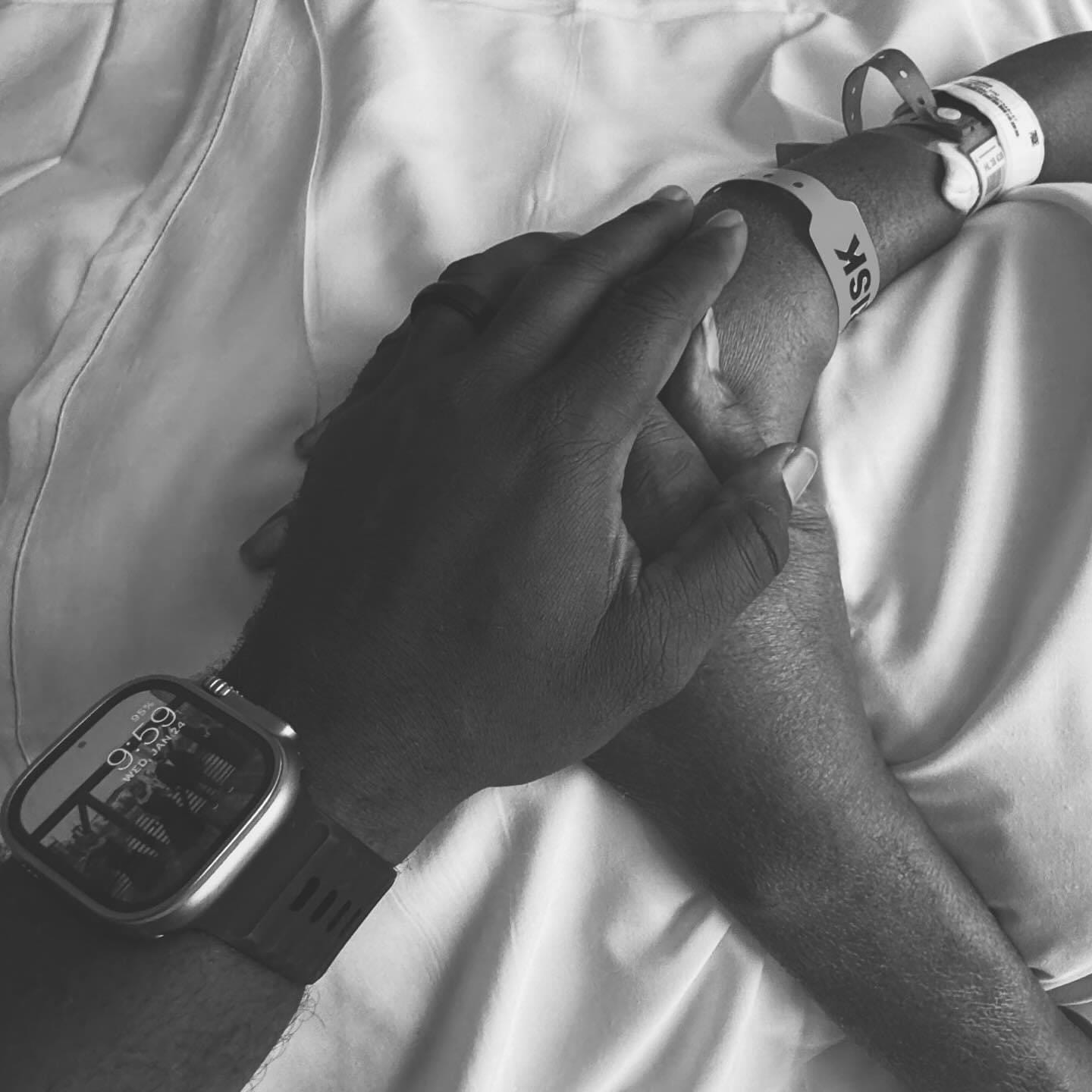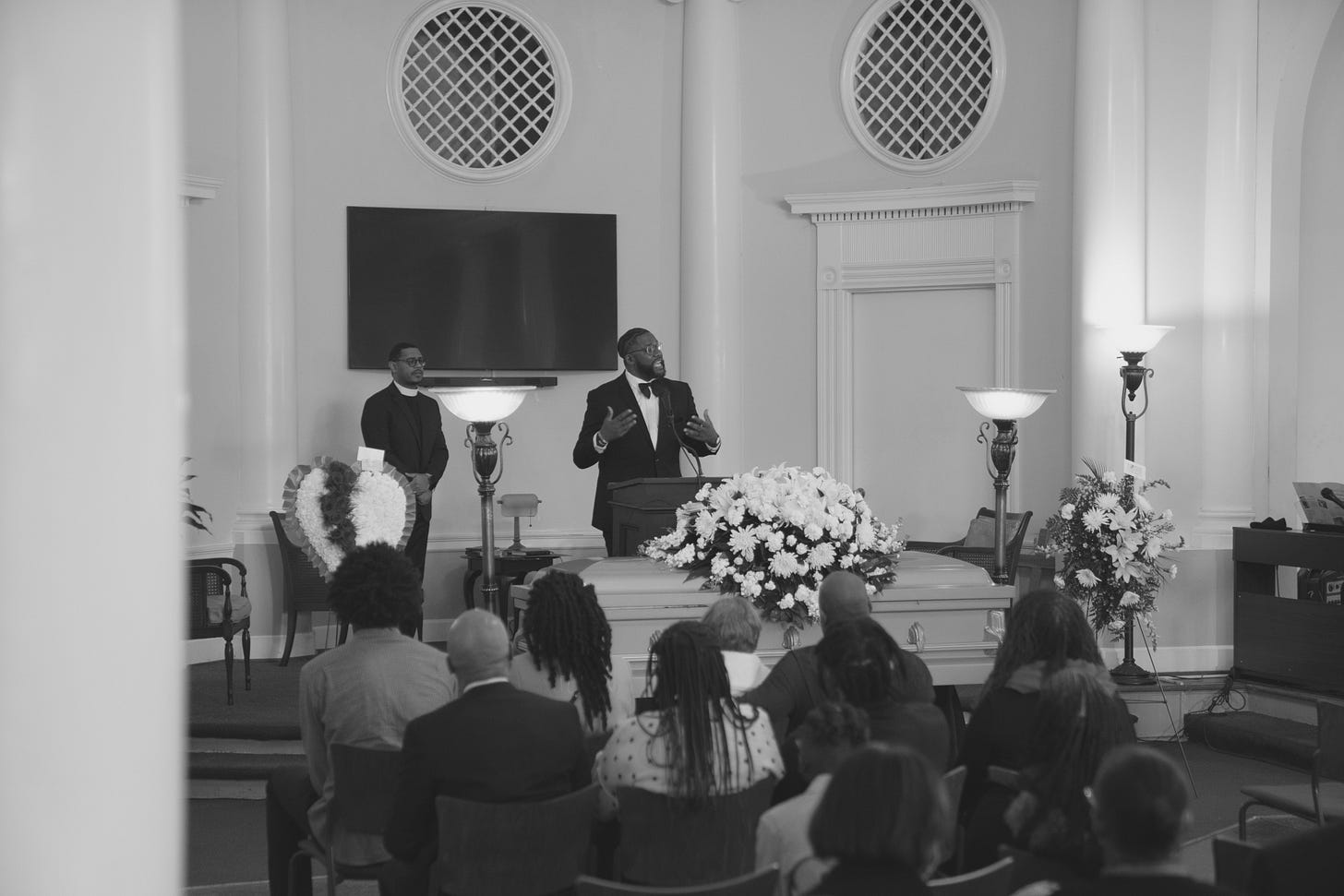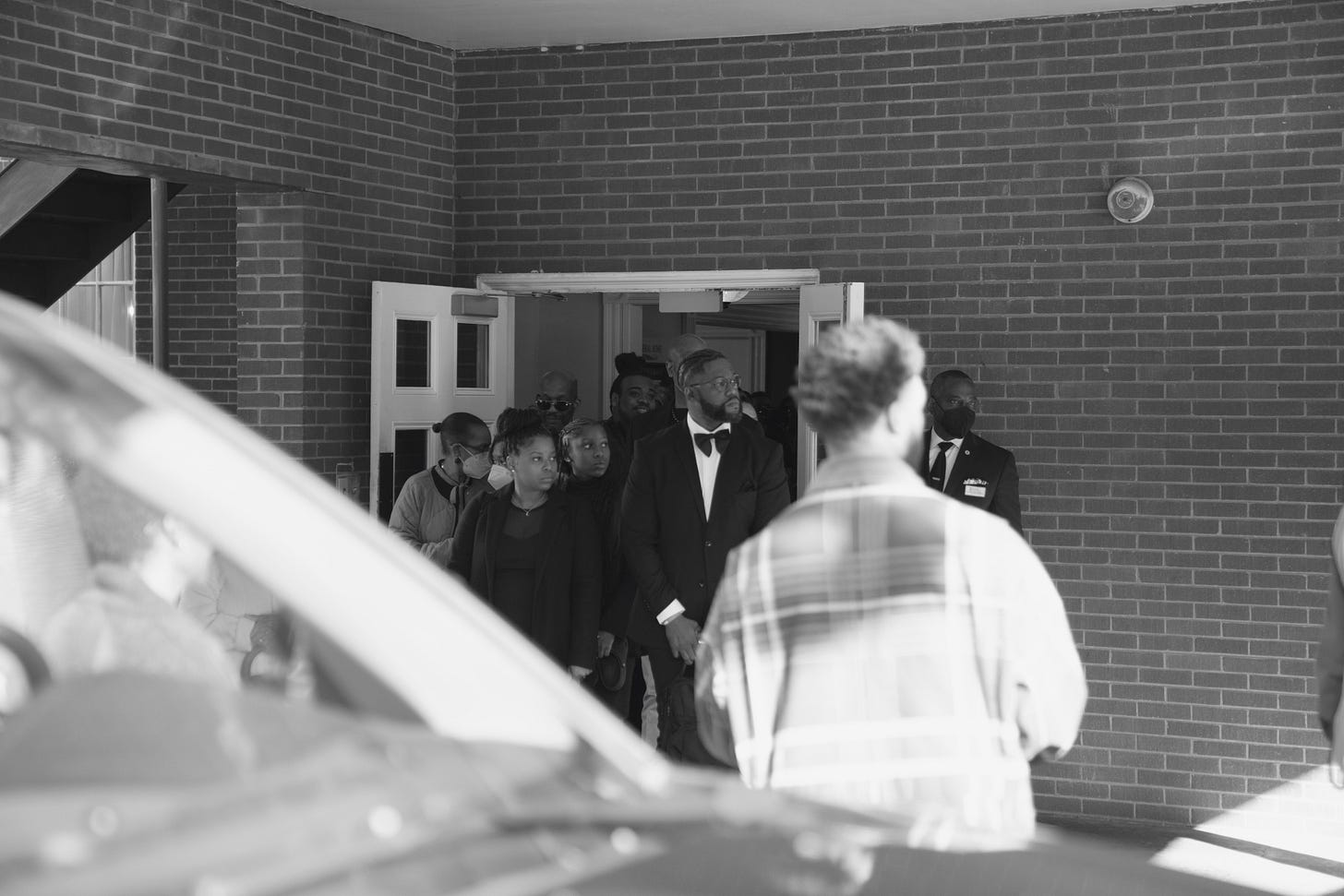Reflections on Losing My Father
Honoring My Father's Legacy and Finding Hope Through Grief
I haven’t written in a while, mainly because I lacked the strength. Last year, I spent over a hundred days in the hospital with my father, supporting him through his battle with cancer.
I chose to respect his privacy by not sharing his journey, yet I am grateful for his support while he battled this illness, even when I was in the hospital the year prior.
Coincidentally, the very hospital where he once visited me after I nearly lost my life and was unable to walk became the same place I returned to support and care for him alongside my wife and sister.
Why I Choose to Reflect
I’m writing today and reflecting because the past few months seem almost like a blur.
As 2023 was ending, my friends were busy with party invitations, Christmas greetings, and sharing their plans for 2024 while I sat in a hospital room, watching my father fight for his life.
This was our third hospital stint in 2023, and something in my heart told me it was different this time. He had always been determined, saying, “I am going to fight this until I can’t anymore...”
This reflects the essence of who my father was—resilient, unwaveringly true to his values and beliefs, but this time, it just felt different. I’m convinced my resilience is a direct inheritance from him.
However, from December to January, there was a noticeable change. After a month in the hospital, he had lost some strength, and we were mostly trying to find ways to continue the fight.
Eventually, the doctors told us that his cancer had progressed to a stage where it was clear that his time was limited.
Anticipatory Grief
Hearing these words was a huge blow. It is similar to gasping for air after being unable to catch your breath.
Nothing can prepare you for walking with a loved one through their final days, nor for the grief that follows the loss of a parent. After 31 days in the hospital, hospice care was recommended, and he took his last breath on January 24, 2024. The anticipatory grief was intense, and then, he was gone—peacefully.
I miss him deeply. I miss our close relationship, our conversations about family, business, sports, and faith, and how he encouraged me even while facing a life-threatening illness.
There was just a comfort in knowing that he was here and I could reach out to him at any given moment. But now, I can no longer do that, and the grief of that alone is heavy.
The Charge
In October, my dad charged me to give his eulogy, which seemed surreal and almost impossible then. As we sat together, he shared his reasons: “T, it has been faith that connected us.”
I responded, feeling the weight of his words, “Dad, you know that’s a huge responsibility.”
With unwavering confidence, he replied, “You can handle it.”
With that charge, I eulogized my father, and we laid my father, Tyrone Herman Lester, to rest on February 3rd, honoring his faith and fight.
Forever Forward
I must say, though, my father was never a quitter!
After we began to be close—I remember one day, I called him and told him that I felt like giving up after nearly losing my life in a car accident. He said, as he frequently did, “T, I don’t care how bad it gets, remember this: forever forward.”
“Forever forward” was his mentality. It didn’t suggest that the trials of life wouldn’t come or the ups and the downs wouldn’t come—it was just a mentality that indicated that I wouldn’t stop if they did come.
My father, Tyrone, was a forever forward person.
No matter what came his way, he was forever forward. No matter what obstacles he had to overcome, he was forever forward. No matter what challenges he faced, he was forever forward.
Nelson Mandela said, “Do not judge me by my success; judge me by how many times I fell down and got back up again.”
My father taught me how to get back up, and I hope that I can get back up as I now battle the grief of his absence.
Resilience and Grief
I know the “forever forward” mentality he cultivated shaped him and has impacted anyone he came in contact with because that mentality is about resilience.
The American Psychological Association says resilience is adapting well during hard times and challenging life experiences. One of the ways it says a person develops this is by “the ways in which individuals view and engage with the world.”
Circumstances did not influence my father, and that made him resilient. He maintained a perspective that allowed him to overcome odds constantly. Resilience does not mean that life doesn’t get hard. It does not mean that your heart doesn’t get hurt. It’s a disposition of the heart and a posture that says, “I’m going to trust God no matter what.”
I watched his journey through what seemed impossible, but there he was, telling me about his faith in God. As he found new health challenges, my father gave me and my sisters a gift: a chance to see him vulnerable. It was in that vulnerability we saw his resilience.
My father told me he would not give up and always fight forward—even to his last day. And it was his fight to the end that gave me hope while also honoring my grief.
As I reflect today, I grieve. I grieve that I cannot call him anymore, talk to him about life things, get advice on coaching my son in basketball, hang out with him and my family as he shares jokes, and just be able to be present with him. Serving him to the end was an honor, but I also struggle today knowing what was next.
What is next to honor his life, and what is next to find hope again after this loss?
Although he has been gone for three weeks, grief is real and comes in waves. Grief and loss have a way of teaching you about love in ways that ease and comfort haven’t.
I believe that grief is similar to a tree,
Grief is sometimes complicated to articulate and is sometimes like the roots of a tree: deep, embedded, and often invisible, yet these roots are crucial to our growth and stability. Just as roots anchor a tree, grief anchors us, and as roots intertwine, so does grief, reminding us of the depth of our connections even as we journey toward joy and healing.
As I journey forward, I am choosing to honor both the grief I feel and the glimmers of hope I find when I think about my father’s charge to “Keep moving forward…”
I am learning to “keep moving forward” amidst grief, which means navigating a delicate balance and fully acknowledging the depth of your sorrow while also allowing yourself to embrace the moments of light and possibility that lie ahead.
It’s about honoring the profound impact your loved one has had on your life, carrying their memory with you as a source of strength and inspiration, even as you face the uncertainty of the future.
This journey through grief doesn’t demand that you leave your emotions behind; instead, it invites you to honor them, recognizing that grief and hope can coexist and even grow together. In this way, moving forward becomes an act of love—a tribute to the enduring influence of your loved one and a testament to your own resilience. It’s about finding a way to live in a world that has changed irrevocably, guided by the light of their memory and the hope that, even in the darkest of times, there are glimmers of joy and renewal to be found.
As I show up to write in the coming months, I will honor his phrase, “forever forward…” with how I live and show up in the world.
I love you, Dad. Thank you for allowing me to serve you!
Son





Beautifully written. I love the concept of “forever forward”.
May you all continue to be strengthen daily.
Love this…brought tears to my eyes. Love how you honored him in this thread.